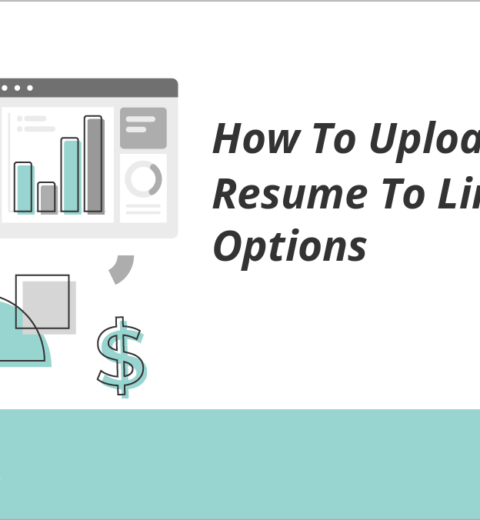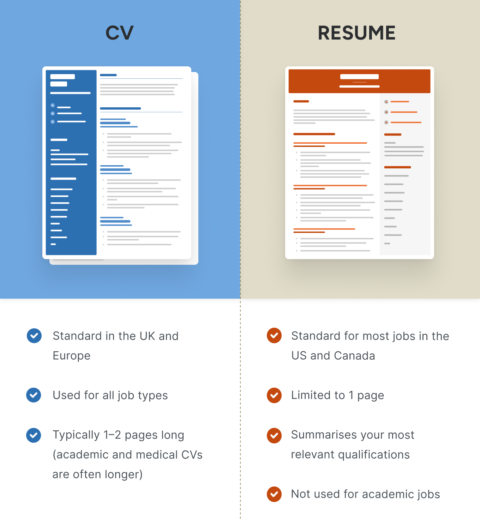In the competitive landscape of job hunting, a resume serves as a pivotal tool for securing interviews and eventually landing a job. Traditionally, the guideline has been to keep resumes to a single page. This maxim often leads job seekers to believe that they should adhere to this compact format without exception. However, the question remains: “Should a resume be one page? When is it acceptable to break this rule?” This inquiry is multifaceted and warrants a comprehensive exploration.
First and foremost, it is essential to understand the rationale behind the one-page rule. Resumes that fit on one page offer a succinct overview of a candidate’s qualifications, experience, and skills. Hiring managers often sift through dozens, if not hundreds, of applications. In this context, a concise resume can streamline the review process, enhancing the likelihood that key information catches the reader’s attention. For individuals possessing limited work experience or for those applying for entry-level positions, a one-page resume is typically sufficient and advisable.
Nonetheless, the adage “less is more” may not universally apply. There are circumstances wherein a multi-page resume is warranted. The first scenario arises for seasoned professionals with extensive experience. Those in senior-level roles, such as executives or professionals with long, illustrious careers, may have accumulated a wealth of achievements, certifications, and relevant information that a single page cannot adequately convey. In such cases, dimension may supersede brevity. A two-page resume can provide a more detailed overview of accomplishments and responsibilities without sacrificing clarity or depth.
Furthermore, certain industries and fields confer their own conventions regarding resume length. Academic and scientific professions, for instance, often require comprehensive curricula vitae (CVs) that extend well beyond two pages. In these sectors, a more elaborate accumulation of qualifications, research, and publications is not only anticipated but thoroughly evaluated by hiring committees. These individuals have amassed a unique tapestry of achievements over their careers, necessitating a longer format to encapsulate their scholarly contributions adequately.
Another circumstance in which a longer resume may be warranted is when applying for roles that demand a diverse skill set. For instance, technology roles have evolved to accommodate hybrid positions that encompass a myriad of responsibilities. A software engineer transitioning into a project management role may need to elucidate both technical and managerial skills. Such multifaceted applications benefit from expansive detail that can elucidate the breadth of capabilities that cater to varying job descriptions.
Moreover, personal branding plays a significant role in modern job applications. With the rise of social networks like LinkedIn, candidates have the opportunity to handpick their narratives. A two-page resume can sometimes reflect a more authentic representation of one’s professional journey alongside online profiles. In industries such as creative fields or marketing, it may even be advantageous to break traditional norms by including a portfolio or a combination of projects, volunteer work, and internships that display versatility.
However, simply extending a resume should not be an exercise in indulgence. Clarity and relevance remain paramount. Each section must serve a purpose, with every bullet point meticulously crafted to convey critical achievements and skills that align with the job description. Fluff or unnecessary embellishments can dilute the efficacy of a resume, leading to disengagement from hiring managers. A succinct and targeted resume, regardless of length, is far superior to one overloaded with information yet devoid of focus.
When drafting an extended resume, centralling strategy is paramount. Utilize a format that enhances readability and navigation. Clear section headers, concise bullet points, and strategic spacing can create an inviting appearance, ensuring that even longer resumes remain easily digestible. Organically integrate keywords and relevant phrases aligned with the desired role. This meticulous attention to detail not only improves clarity but enhances the document’s compatibility with Applicant Tracking Systems (ATS), which many companies employ for initial resume screenings.
Furthermore, case studies and quantifiable achievements can bolster a longer resume’s credibility. In contrast to generic statements, involving specifics can directly convey impact. For instance, “Increased sales by 30% in Q2” provides tangible proof of an individual’s contributions specifically tailored to a corporate setting. Specificity adds weight and encourages hiring managers to consider the candidate more favorably.
In addition, the decision to extend a resume must take into account the target audience. Some industries maintain a preference for traditional formats, wherein extra-length could be viewed unfavorably. Conversely, embracing innovation in sectors such as startups may be perceived positively, deeming candidates adventurous and flexible. Conducting thorough research on the preferences of prospective employers can inform decisions regarding resume length effectively.
In conclusion, while the traditional wisdom of maintaining a one-page resume remains relevant, it is not an absolute rule. Professionals with extensive experience, unique skill sets, or those navigating specialized industries may find it appropriate to extend their resumes to communicate their qualifications fully. However, regardless of length, clarity, specificity, and relevance are essential in crafting an effective resume. Balancing detail with brevity will always present candidates in the best light, aligning their narrative with the expectations of hiring professionals. Ultimately, the key is to present a polished, authentic reflection of one’s professional self that resonates with the intended audience.




